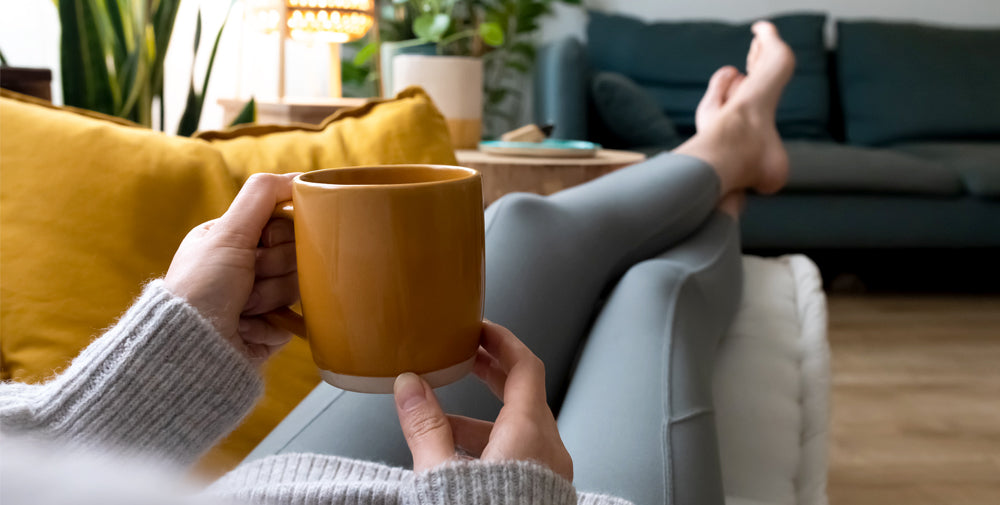Seven years later, Symbodi was born, helping to bridge the gap between human limitation and human potential by creating tools that help us feel our best, so we, as humans, can be our best. The company launched its first product, the Vertiball, which is the world’s first hands-free mountable massage device.
11-months after launch, Kennedy appeared on CBC’s Dragons Den (a Shark Tank clone) and landed a deal with Arlene Dickenson before raising a $520,000 pre-seed round that went towards the development of a second product, the Vertiroller. A third product is expected to be released at CES in 2023.
To date, Symbodi has generated more than $8M in revenue over its first three years of existence, but still maintains a small staff of less than 10 people. We recently spoke with Kennedy about his company, his inspirations, and the future of Symbodi as a company.

Q: Where did you get the idea to start a company like Symbodi and what is it rooted in?
A: “When I was younger, I was always working on inventions with my grandfather, who is also an inventor. And at a young age, I had three definitive interests. It was hockey, being an astronaut, or an inventor. I think I was seven years old when I had posters of all three. I thought it was realistic at that time that I could be all of those things. Later I learned, that's not possible.
Fast forward to 14 years old, I was playing competitive hockey and putting a lot of focus on that. Then, out of nowhere, I had this big lump on my leg and it ended up being a very rare form of cancer. It had only been studied 20 other times in the history of pediatric oncology. It was a four-year stint of chemotherapy with 26 surgical procedures and a long and heavy road with a lot of bad days. A lot of days feeling just about as bad as you could feel in your own body. That period of time taught me how fundamentally important it is to the human experience to have a body that feels good.
Through that time, I had a lot of time with my thoughts—thinking about what I wanted to do with the rest of my life—once I got through this. I had a little notebook at the time and I theorized and planned that at some point, whenever it made sense and whenever I had the resources and knowledge to go about it, that I would start a company called “Be the Best You Can Be,” which focused on making products and technologies to help people feel as good as they can in their daily lives.
Back then, I didn't know for sure what the inventions would be, but I knew I wanted them to be health-oriented, everyday products that could easily fit into people's everyday lives to help people feel the best they could feel every single day. 2014 was an amazing year in my life, as it was the year I finished chemotherapy, and the year I started university to study mechanical engineering. I got really into 3D printing with all the design projects I was doing and realized all the amazing resources I had around me from technologies like 3D printing to professors that were willing to help me and give me insight. I figured there'd be no better time to start the business while surrounded by brilliant people in academia.
I started thinking about what problem I wanted to solve. I figured the best chance at success would be if I tried to solve one of my biggest problems — which had been daily back pain. Since I was little, I would always lay on top of a golf ball as a way to alleviate tension in my back. And for one of the world's most common health problems, it was hard for me to believe that that was a solution that people still relied on for back pain.
So, that was the thinking for our first product, the Vertiball, a personal muscle care device that uses an airlock mounting system to lock on to walls at specific heights enabling the user to effortlessly target hard-to-reach areas of the back with total control over how much pressure is applied. The thinking was, if the back is this complex, then it's essential that people have tools that are accessible to them and can fit into their daily life.”
Q: You introduced two successful products, the Vertiball and the Vertiroller. Please talk a little about what they do and who they've been good for.
A: “I really wasn't sure what to expect out of the gate. I think I had lost the expectations because the product meant so much to me. It was making such a difference in my life, even the not-yet manufactured version, just the 3D printed ones I was making. I was using them every day. I figured that everyone can benefit from one of these products and I do still think that everyone can benefit from one of these products.
You can drink a coffee or send emails while you're massaging your back with total control. It's a tool for optimization because when you're lying your full body weight on a golf ball trying to hit specific areas, there's not much repeatability to those exercises. Say one day you're feeling good and then the next, you're not feeling as good. Was it the fact that the exercise was incorrect or was it that the way you performed that exercise that was incorrect? That's what Vertiball and Vertiroller do is they give you total control so that you can customize pressure path routines over time, figure out where to work on—and where to not work on—ultimately leading to feeling your best for the most sustained duration of time.
Vertiball is very good for getting deep down into the different layers of muscle tissue and for very pinpoint pressure. Vertiroller is better for the more delicate areas like your lower back as it's on a linear axis so the motion of it can be very controlled and in one direction. With Vertiball, you can go up, down, side-to-side and in all directions to target these complexly oriented muscles in different areas. And so Vertiroller also helps people warm up the back. It has a compressible elastomer surface that distributes pressure really evenly across the body. And then once you're feeling warmed up, you use Vertiball to get really deep into those specific areas. My goal in creating the accessibility of these products is so you can work it into your daily life.”
Q: Why have we seen so much growth in sports tech and recovery in the last five years and what do you think the future of the industry is going to look like?
A: “Symbodi’s slogan is ‘Optimizing to Infinity.’ It might not make much sense to someone buying a ball that sticks to a wall, but it's an idea of humanity and what we're all pushing towards. I think it's human nature for us to continue to create these tools that extend our physical limitations and improve who we are, how good we feel and how good we perform in all elements of life.
I think it's in our nature to continue to create these tools and continue to push for innovation until there is no longer that deficit, until our bodies can function just as well as our minds can. It's in our nature to create these sorts of tools—and specifically in this space. Feeling good is so essential to being your best. If we can feel better, we can be better. Everyone's trying to feel their best so they can be their best. That has a lot to do with this growing industry and why it will continue to grow into the future. And I hope for Symbodi to be a leader in that space and celebrate the feel-good philosophy and also optimization to infinity. That’s the journey that we're all on.”
Q: Where do you want Symbodi to be in the next five years and where would you like to be?
A: “Even though we're a small team at this point, we're very design focused. We want to create new technologies that the world has never had exposure to. Because one of the amazing things about human beings is that we have the ability to create tools that extend our physical limitations. That gets me excited about waking up everyday knowing that whatever you can think of, you can create as long as it doesn't break the laws of physics.
And so for Symbodi, what we hope to achieve is to create these tools that extend our physical limitations and help us live better, healthier lives. Circling back to my childhood experience, I think that comfort and feeling good is so essential to feeling consistent joy. And I think that's all anyone wants in life is to try to find as much joy as possible. We want to create the tools to help facilitate that.”



